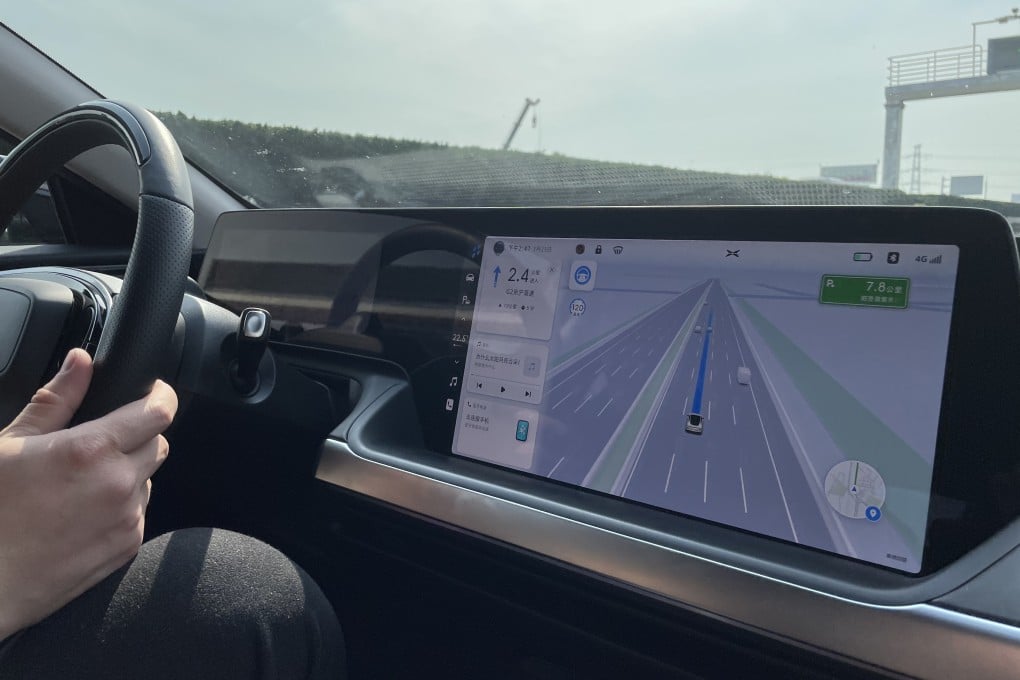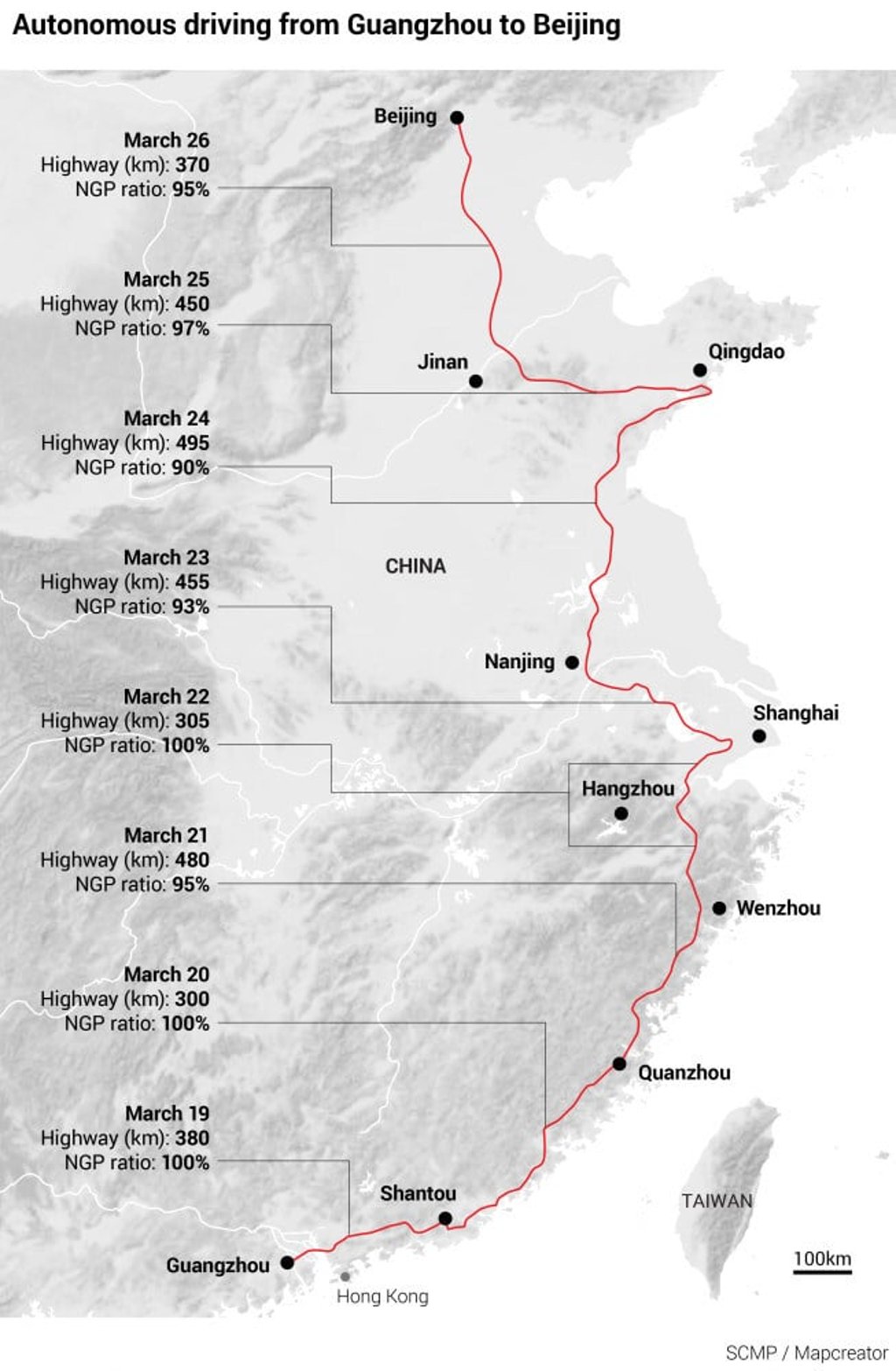China EV war: Xpeng’s autopilot aces 3,675-km Guangzhou-to-Beijing journey in country’s longest autonomous driving test
- A fleet of mid-sized P7 cars test company’s Navigation Guided Pilot function, a newly released feature
- Carmaker is first to install lidar technology in a production model

Xpeng said the P7s, guided by their Navigation Guided Pilot (NGP) function, a newly released autonomous assistance feature, had “set some of the most successful records to date over long distances in real road conditions in China”. According to Chinese road regulations, drivers should have their hands on the steering wheel at all times, in case they have to take over.
The P7s passed through the cities of Shantou, Quanzhou, Wenzhou, Hangzhou, Shanghai, Nanjing, Qingdao and Jinan on their journey to Beijing. This reporter joined the drive from Shanghai to Yangcheng Lake, a distance of 90km.

Xpeng’s NGP function provides navigation-assisted autonomous driving from point A to B, based on the route set by the driver. It is available on highways covered by high-precision maps in China.
